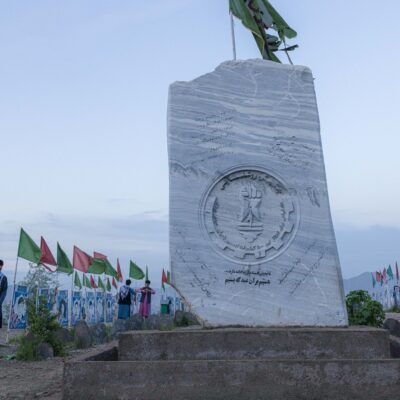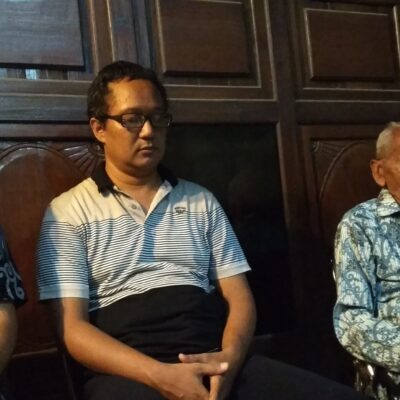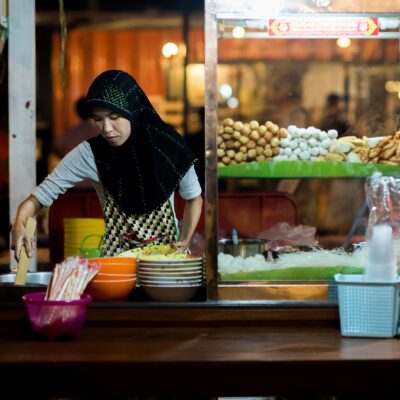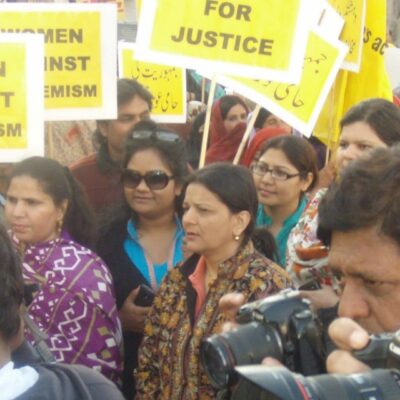For several periods between the 2000s-2010s, I worked as a language teacher in the Central Highlands of Vietnam where I had the chance to observe and interact with local minority students. At the time, I thought it was beneficial for the students to learn school lessons in Vietnamese, the language of the Kinh majority, and that their ethnic language could be an obstacle to succeeding at school. That is still a common view in Vietnam. But having done extensive further work in this area, I have come to realise that minority people in Vietnam are suffering under linguistic colonialism which can significantly impair their education and mobility prospects. This is a question of (in)justice among ethnic groups in Vietnamese society of which we need to be aware and take action.
The following statement was made by a vice-principal of a mixed-ethnicity secondary school in the Central Highlands where there were minority students of different ethnic backgrounds such as Bahnar, Rengao, or Jarai:
“Local languages should be used only in communication, in a certain local place, like a village, in a certain place of the region. About general education, they (minority students) should use Vietnamese [to study all subjects]”.
For the vice-principal, it was impractical to use minority students’ mother tongue as a language of instruction. She stated that if minority students wanted to reach vocational or higher education, they needed to learn in Vietnamese from their early days of schooling. She believed that this would facilitate a pathway for their future study and other life opportunities. This seems to be the vice-principal’s personal view. But the idea that minority languages are not suitable for education, employment, and development for those who are categorised as “ethnic minorities” is not uncommon in Vietnam where linguistic colonialism exists.
Linguistic colonialism
If colonialism is often understood as a situation where a country takes control of another country by force, linguistic colonialism is related to the language aspects of colonialism. It can be a situation where the settler colonialists impose their language on the colonised people, no matter if the settlers are the majority or minority compared with the local population. Linguist John de Francis observes that Vietnam has experienced linguistic colonialism by Chinese and French people who brought the Chinese and French languages respectively to Vietnam as a colonial language. In different post-colonial eras, Vietnamese governments have promoted Vietnamese as the national language, which is seen as a means for national identification and a weapon for anti-colonial attempts.
The term linguistic colonialism also refers to the situation where a government imposes a national language (often the language of the majority group) and forces minority groups to learn and use that language, thereby linguistically “colonise” the minority groups who are also local to the territory. This form of colonialism is, thus, not necessarily connected with the country’s (non)colonialisation history. Linguistic anthropologist Gerald Roche suggests some features of this type of linguistic colonialism in describing the situation of minority languages in China, where the mainstream language (i.e. Putonghua) is privileged, officially-recognised minority languages are subordinated or marginalised and non-recognised languages are in danger of being erased. This version of linguistic colonialism, which can be referred to as internal linguistic colonialism, where there are attempts to impose a majority language upon ethnic minorities within the same territory, also occurs in Vietnam.
Why do authorities make this language imposition? Often it is argued that a common language is necessary for communication and exchange among people of different ethnicities and for national cohesion, as in Vietnam. It can often be part of the state’s nation building agenda which draws on the “one state one language” ideology, that aims to assimilate minority people into the majority community. Similar to linguistic colonialism in past colonised territories, internal linguistic colonialism also spreads the belief that the majority language is superior, prestigious, or modern, and minority languages are inferior, worthless, or backward.
Linguistic colonialism prevails in Vietnam, as in many other multiethnic territories. Unfortunately, colonialism in general and linguistic colonialism in particular have intensified social inequality and ethnic distance in the country. In the Central Highlands, for instance, majority–minority relations are not always as harmonious as the government expects. The increasing number of Kinh majority settling near minorities’ residential areas has sometimes led to unrest, tensions, and mistrust between the two groups. Ethnic minority people and their languages are, in addition, often subjected to discrimination, stereotypes, and prejudice. In official media, they are often portrayed as backward, superstitious, and conservative. In informal public discourses, “ethnic” people and “ethnic” languages are sometimes understood as “inferior”. These negative connotations are often manifested implicitly, as official discourses in major social areas refer to minority people and minority languages in a rhetorically positive tone.
In Vietnam, minority languages are devalued and placed at a lower rank compared with the national language, Vietnamese. Although scholars estimate that there are approximately 100 languages or language varieties in the country, only 54 languages are officially recognised. The idea that there are “54 ethnicities” and “54 languages” in Vietnamese is quite common in public discourse. This ethnic and language classification has been observed to be far more a political than a scientific or social project. While the Vietnamese language enjoys a privileged and popular status, minority languages are almost absent or not seen to be important in major social contexts, such as governance, education, business or national media.
Mainstream education
Mainstream education established by the Kinh dominant group is the principal agent for the government to impose linguistic colonialism on minority people. In most mainstream public schools in Vietnam, Vietnamese is used as the only language of instruction to teach all subjects to students, regardless of whether the students are Kinh or minority. This means that many minority students have to be schooled in a language other than their mother tongue about which they have limited knowledge. This makes learning more difficult and school is where they have to struggle with the language to “sink or swim”. This negatively affects the students’ classroom engagement, interactions with teachers and peers, and language and ethnic esteem in school. In this educational environment, they are dispossessed of the rights, identity, voice, and autonomy associated with their mother tongue.
But minority students’ language problems in school are not adequately considered. In fact, many Vietnamese policy makers, school administrators, and teachers believe that minority students need to learn in Vietnamese, as minority languages can hinder the students’ study. The administrators and teachers I interviewed for my research project, for example, said that these languages were underdeveloped and unqualified to be used as a school language (e.g, lack of a writing or vocabulary system). For them, the use of minority languages could result in lower levels of social participation for speakers, and therefore education in minority languages would be disadvantageous. Other reasons, as they indicated, are related to ethnic diversity (schools may not have the resources to provide language teaching to small numbers of minority students of different language backgrounds) and a shortage of teachers who can teach in minority languages.
Notably, these administrators and teachers appeared to be surprised when I asked them whether minority languages should be used as a language of instruction to teach school subjects to minority students. Some of them seemed to misunderstand what I meant, so I had to explain the question again. Although many of them had taught or interacted with minority students for a long time, they had never thought about the idea of teaching minority students completely in their ethnic language. This was perhaps due to not only their lack of knowledge about alternative educational models, but also their exposure to negative societal attitudes towards languages of ethnic minority groups. In public ideologies, minority languages are often considered unresourceful or impractical (although these ideologies are not often explicitly declared). I concluded that linguistic colonialism which promotes the superiority of Vietnamese and the devaluation of minority languages has a widespread impact on language attitudes, including those of the administrators and teachers mentioned above.
Internalised inferiority
Ideologies of linguistic colonialism in national language policies, school language management, and adults’ language attitudes and practices can contribute to perpetuating the feeling of linguistic inferiority among minority students. Students learn from colonialist discourses and come to believe that Vietnamese is the right language to learn for a better life and brighter future, rather than their ethnic language.
A young Jarai speaker and one of my former students from a college where I was working as a teacher many years ago told me: “Don’t know Vietnamese, that means, being illiterate and unemployed, and can’t travel around” –Y-Mien (pseudonym). She made the statement during an informal discussion about the importance of different languages in her life. We can see she suggested that knowing the Vietnamese language meant wider social relations, education, career, and travel, and that without Vietnamese, these opportunities could be out of her reach. Similar to Y-Mien, other minority students to whom I talked believed that employment, university, success, and social mobility were only possible with Vietnamese proficiency. For most young minority people today, knowing Vietnamese is regarded as vital.
Minority students who believe in the discourse about the superiority of Vietnamese can construct what the semiotician Walter Mignolo calls the “coloniality of being“. As they are exposed to linguistic colonialism and devaluation in school and the wider society, they can have a sense of “internalised linguistic devaluation”—they tend to judge the value of their languages by the view and standards of the majority. Y-Xuong (pseudonym), a Jeh speaker, for example, said: “If I studied in Jeh language, I couldn’t integrate with them (Kinh majority people), then I would be sort of self-pitying”, implying that studying in her ethnic language as a medium of instruction throughout her schooling could prevent her wider social participation.
Minority students’ immobility
Linguistic colonialism can, however, impair educational and mobility justice for minority students. The assumption that if minority students are educated in Vietnamese, they will have better education and mobility opportunities, is perhaps misguided. Statistics show high drop-out rates and low academic performance among minority students compared with their Kinh majority counterparts. Almost all administrators and teachers whom I interviewed stated that minority students faced a number of challenges being taught the school curriculum in a language that is not their mother tongue, and many of them could not catch up with Kinh majority students. They also observed that the minority students were often silent in class and rarely voluntarily participated in learning activities. Many administrators and teachers were also not optimistic about the future education and mobility of their minority students after secondary education.
The number of minority students who can “survive” and pass 12 years of school education and reach tertiary education is relatively small. It is suggested on a government’s website, for example, that in the academic year 2021-2022, minority students made up 17.6 percent,16.9 percent, and 12.9 percent of the total primary school, lower secondary school, and upper secondary school students, respectively. But minority students accounted for only six percent of the total university students in the country. Scholars who research ethnic minority students in Vietnam report concerns about limited career prospects and mobility opportunities for minority students, even if they have pursued higher education. They indicate that minority parents often did not want their children to attend a high school, college or university because they observed that many young people from minority communities who completed a university degree and had an advanced level of Vietnamese proficiency still could not find a job relevant to their qualification. It therefore does not sound rational to suggest that education in their mother tongue will lower the social mobility prospects of minority children. Minority students’ immobility stemming from colonialism results in political disparities, unequal distribution of resources, as well as educational, economic, and social injustices for minority ethnic groups.
How should the negative effects of linguistic colonialism on minority students in Vietnam be addressed? Remedies related to colonialism should draw on decolonial approaches, which bring the resources, culture, and knowledge of minority groups, who have long been oppressed and sidelined, to the fore and make their voices heard. In terms of language, decolonialisation facilitates the recognition and promotion of minority languages in areas such as education. Language and education researchers have suggested that mother-tongue based education for young minority children is one of the most promising solutions for this group’s learning problems. There is compelling evidence of the benefits of mother-tongue based education in improving students’ learning, engaging them in social participation, and supporting minority language maintenance.
There are some efforts to bring this form of education to students of ethnic minority groups, such as the mother tongue-based bilingual education program developed by the United Nations Children’s Fund UNICEF and Vietnam’s Ministry of Education and Training. However, these are small-scale and pilot projects, which have benefited only a small number of students. More is needed to combat linguistic colonialism and support ethnic minority students to be part of the mainstream, while still maintaining their culture, identity, voice and autonomy associated with their ethnic language. Although being exposed to various colonialist discourses, not all student participants in my research projects opposed the idea of learning in their mother tongue. Some young minority adults expressed pride in their language, ethnic identity, and cultural traditions. Y-Khau (pseudonym), a Bahnar speaker, for instance, stated: “[If] my [ethnic] language is used in school, used for teaching, for learning, I feel proud [of that]”.
Image: Sapa, north Vietnam, 2022. Credit: Rod Waddington/Flickr.




